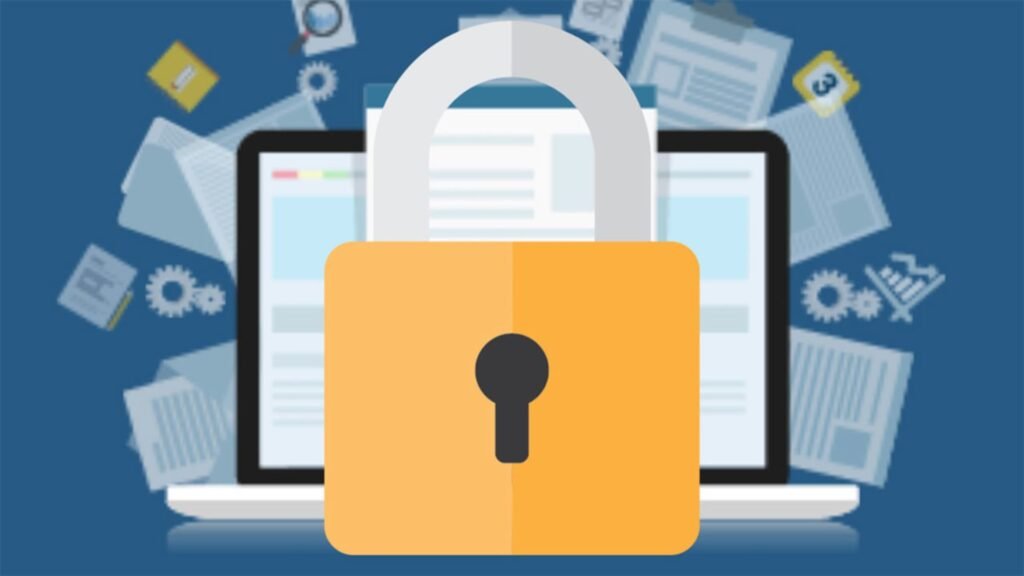Securing your internet privacy is essential in today’s digital age. How to secure your internet privacy involves implementing several practices to protect your personal data from unauthorized access and potential breaches. This guide provides practical steps to enhance your online security and privacy.

1. Use Strong, Unique Passwords
Create Complex Passwords
- What to Do: Use a mix of letters, numbers, and symbols to create strong passwords.
- Why It Helps: Complex passwords are harder for hackers to guess or crack.
Employ a Password Manager
- What to Do: Utilize a password manager to store and manage your passwords securely.
- Why It Helps: Password managers help generate and remember unique passwords for different accounts, reducing the risk of password-related breaches.
2. Enable Two-Factor Authentication (2FA)
Set Up 2FA on Your Accounts
- What to Do: Activate 2FA by linking your accounts to a phone number or an authentication app.
- Why It Helps: Adds an extra layer of security by requiring a second form of verification beyond just your password.
Use Authentication Apps
- What to Do: Choose apps like Google Authenticator or Authy for generating 2FA codes.
- Why It Helps: Provides a more secure method of verification compared to SMS codes, which can be intercepted.
3. Keep Your Software Updated
Install Updates Regularly
- What to Do: Regularly update your operating system, browsers, and apps.
- Why It Helps: Updates often include security patches that protect against newly discovered vulnerabilities.
Enable Automatic Updates
- What to Do: Turn on automatic updates for your software to ensure you always have the latest security features.
- Why It Helps: Ensures your software is up-to-date without requiring manual intervention.
4. Use Secure Connections
Connect to Trusted Networks
- What to Do: Avoid using public Wi-Fi for sensitive tasks. Use a VPN if necessary.
- Why It Helps: Public Wi-Fi networks are less secure and can expose your data to potential threats.
Use a Virtual Private Network (VPN)
- What to Do: Subscribe to a reputable VPN service to encrypt your internet connection.
- Why It Helps: A VPN hides your IP address and encrypts your online activities, making it harder for others to track your browsing.
5. Be Cautious with Personal Information
Limit Sharing Personal Details
- What to Do: Be selective about the personal information you share online, especially on social media.
- Why It Helps: Reduces the risk of identity theft and privacy breaches.
Review Privacy Settings
- What to Do: Regularly check and adjust privacy settings on your social media accounts and online profiles.
- Why It Helps: Ensures that you control who can view your information and how it is used.
6. Protect Against Phishing Scams
Be Wary of Suspicious Emails
- What to Do: Avoid clicking on links or downloading attachments from unknown or suspicious emails.
- Why It Helps: Prevents you from falling victim to phishing scams that attempt to steal your personal information.
Verify Website URLs
- What to Do: Check for secure URLs (https://) and verify the legitimacy of websites before entering personal data.
- Why It Helps: Ensures you are on a legitimate and secure site before providing sensitive information.
7. Manage Cookies and Tracking
Clear Cookies Regularly
- What to Do: Periodically clear your browser cookies and cache.
- Why It Helps: Reduces the amount of data collected by websites and can enhance your privacy.
Use Privacy Extensions
- What to Do: Install browser extensions like Privacy Badger or uBlock Origin to block trackers and ads.
- Why It Helps: Helps prevent websites from tracking your online activities and collecting your data.
8. Monitor Your Online Footprint
Check for Data Breaches
- What to Do: Use tools like Have I Been Pwned to see if your email or personal information has been involved in data breaches.
- Why It Helps: Allows you to take action if your information has been compromised in a data breach.
Review and Delete Old Accounts
- What to Do: Regularly review your online accounts and delete those you no longer use.
- Why It Helps: Reduces the risk of old accounts being exploited and helps you manage your online presence more securely.
Conclusion
Securing your internet privacy involves a combination of strong passwords, secure connections, and cautious online behavior. How to secure your internet privacy can be managed by following these steps, including using 2FA, updating your software, and protecting against phishing. By implementing these practices, you can better safeguard your personal information and enjoy a more secure online experience.











